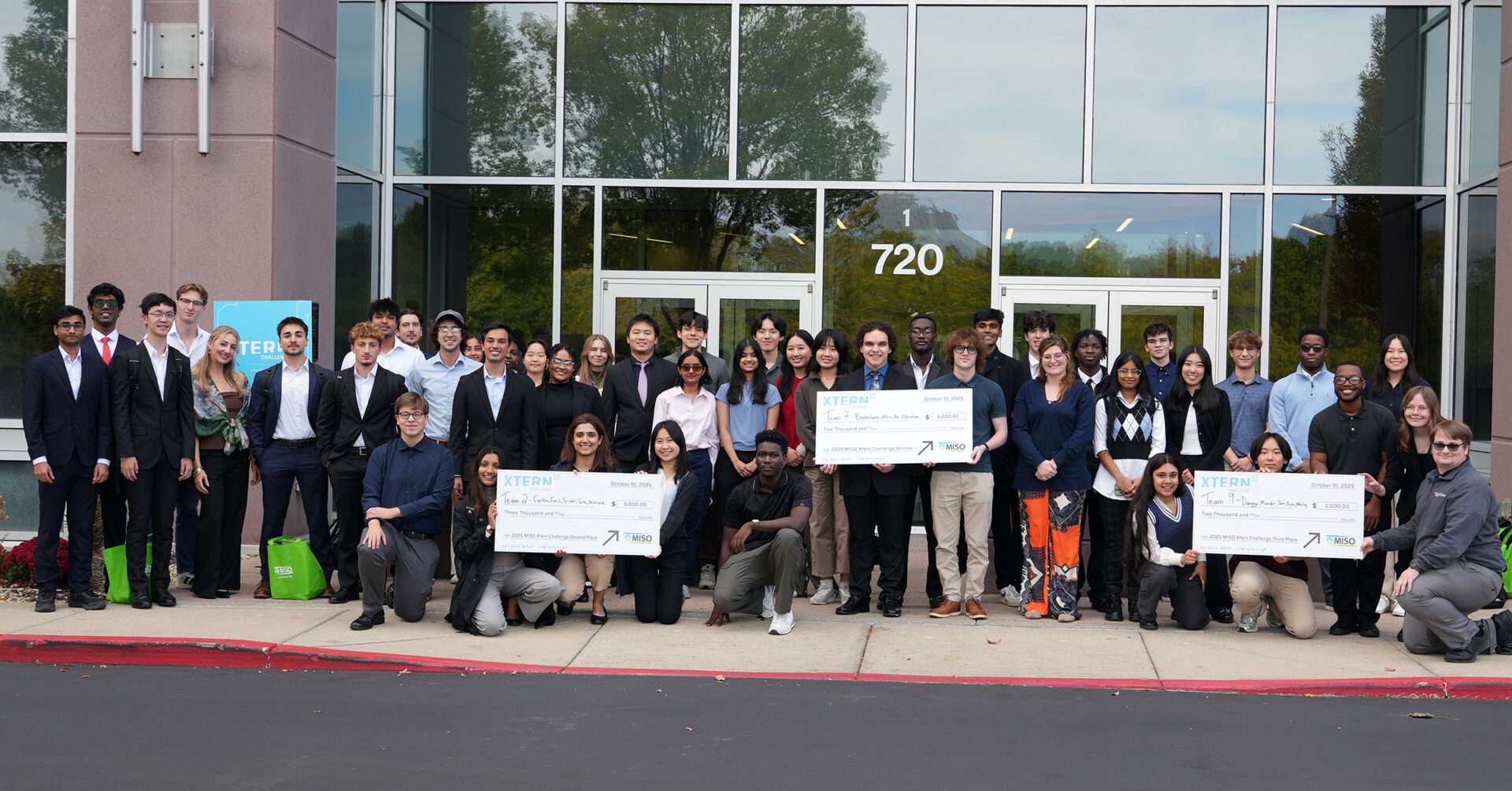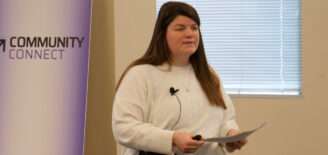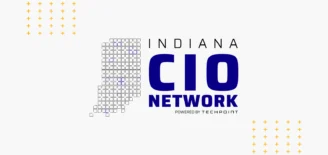Students Apply Data Science Skills to Real-World Energy Challenges at TechPoint’s First Xtern Challenge, Hosted by MISO
TechPoint’s first-ever Xtern Challenge brought together Indiana’s top student talent for a hands-on, data-driven competition hosted by MISO (Midcontinent Independent System Operator). The event invited teams to apply their technical and analytical skills to a real-world problem facing one of the nation’s most critical industries: maintaining a reliable and cost-effective energy grid.
The new program builds on TechPoint’s mission to expand work-based learning opportunities that connect students with industry partners and help them gain practical experience solving challenges that matter to Indiana’s economy.
What is the Xtern Challenge?
Launched in Fall 2025, the Xtern Challenge is a series of hackathons, design sprints, and case competitions where students collaborate on real-world business problems designed by Indiana companies and work alongside industry mentors.
These events give students a chance to apply their classroom knowledge to practical challenges while learning new tools, gaining feedback from professionals, and building their experience to help them land their next step in their career journey.
A Real-World Challenge: Social Listening for Policy Strategy Shifts
Each team worked to address a prompt developed by MISO: “Social Listening for Policy Strategy Shifts.“
The challenge asked students to use public data and social signals to identify when energy stakeholders, such as utilities, developers, or policymakers, begin laying the groundwork for new policy strategies before they are formally announced. For example, changes in communication patterns, unusual sentiment shifts online, or other behavioral signals. By identifying early indicators of policy shifts, MISO can communicate and plan more proactively, supporting grid stability and fairness across the Midwest.
A successful solution would:
- Gather data that could contain indications of a shifting policy strategy
- Separate signal from noise to clearly articulate trends
- Recommend trends that MISO should focus attention on and explains why the information is significant/impactful. It enables MISO to focus on particular stakeholders, trends, or policy initiatives to support more transparent and proactive grid and market operation
- Cites tools and sources used, including use of generative AI
Judges evaluated each project on four dimensions: data storytelling, the quality of the solution, the clarity of insights uncovered, and the effectiveness of the presentation. Teams were also encouraged to reflect MISO’s core values of Integrity, Commitment, Collaboration, Creativity, and Adaptability throughout their work.
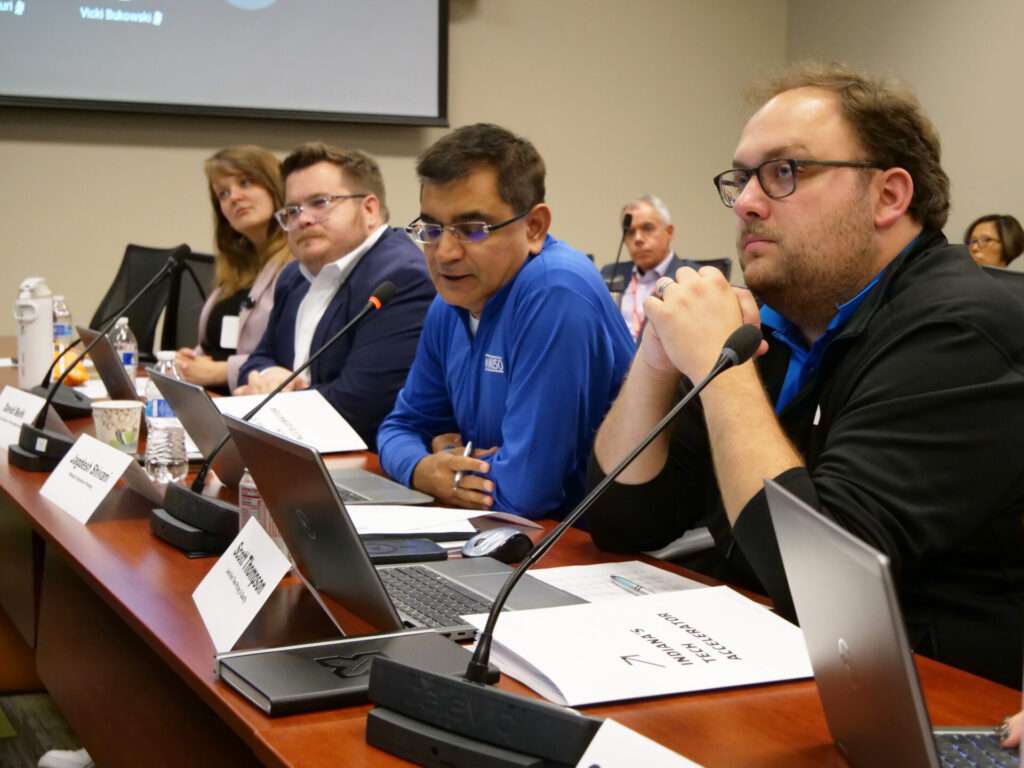
Collaboration and Mentorship
Universities nominated top students to participate in the Challenge, and ten teams of five students each were assembled. After an official virtual Kick-Off on September 29, teams had until presentation day on October 10 to collaborate virtually to prepare for the Challenge.
MISO also provided access to 12 dedicated data scientists as mentors. These mentors provided ongoing guidance, helping participants refine their ideas, structure their data models, and connect technical methods to real-world applications in energy policy and system operations.
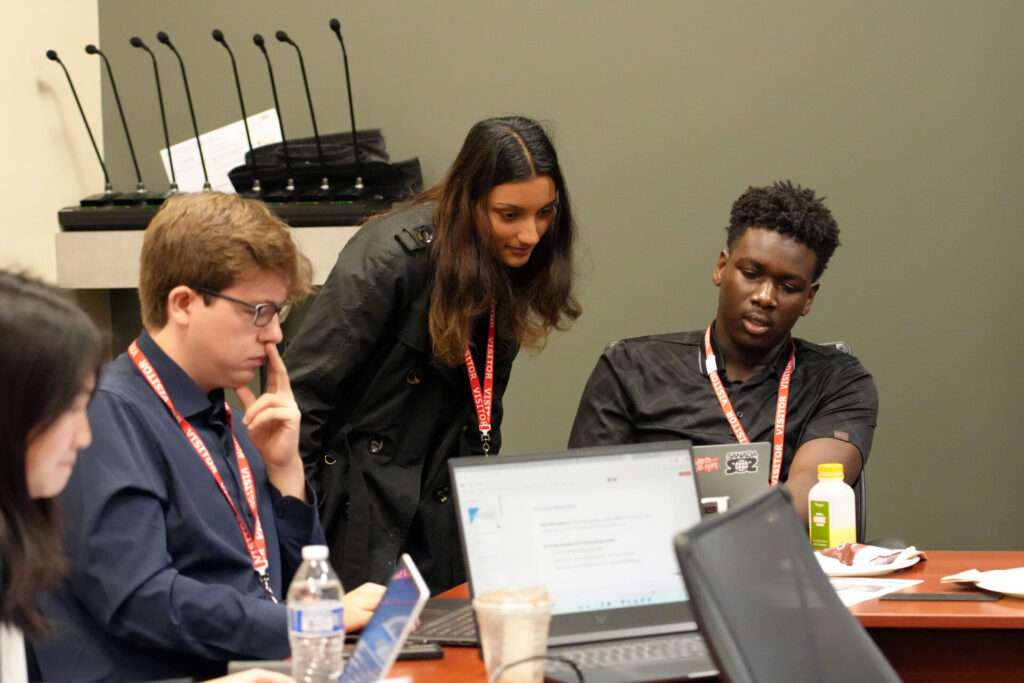
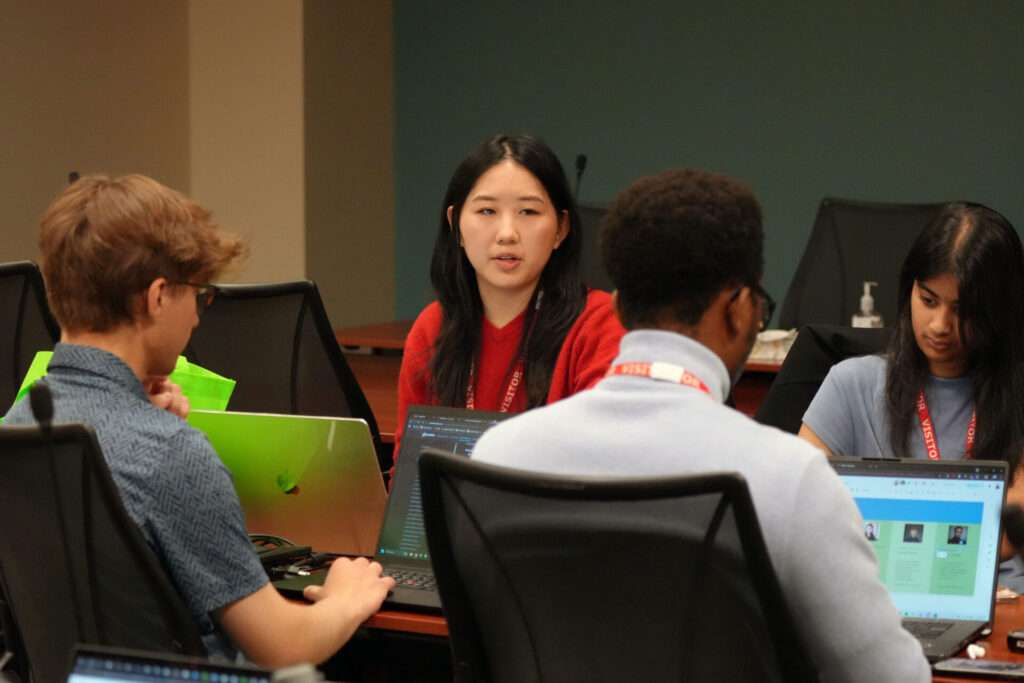
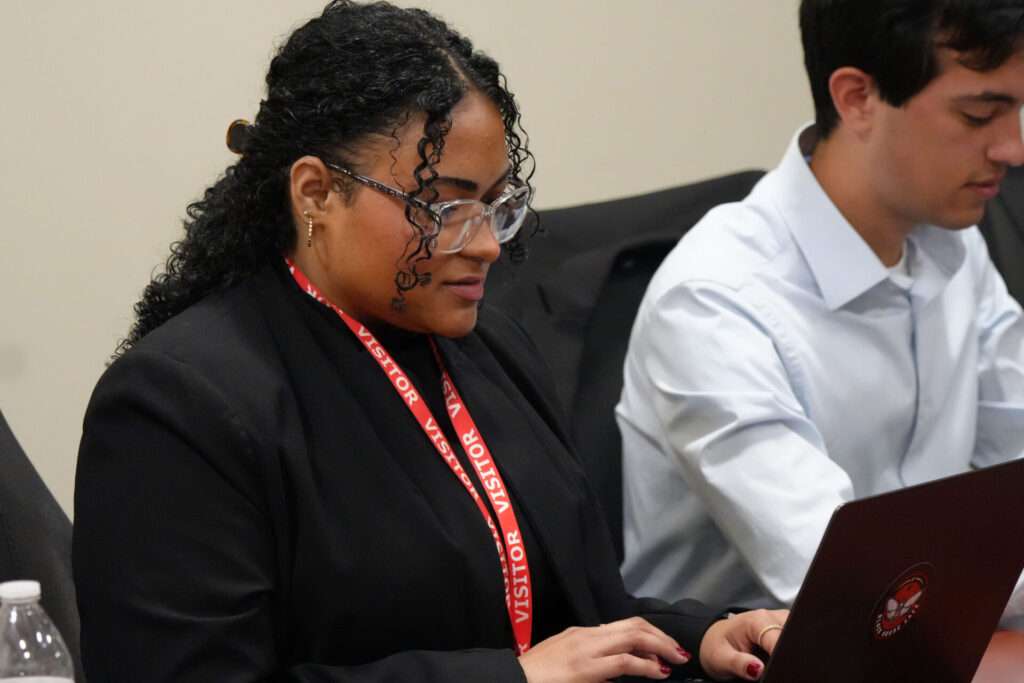
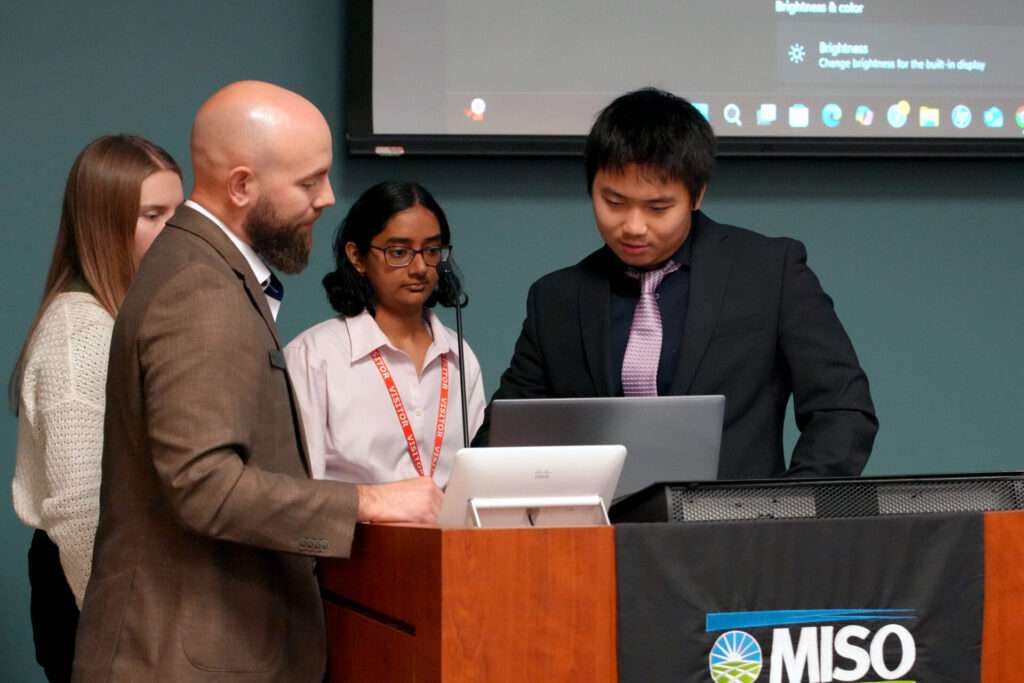
Everyone came together on October 10 at MISO for final preparation, then presented their work to be judged by a panel of MISO judged, giving students direct exposure to potential employers and a realistic understanding of how data science impacts energy strategy. Cash prizes were awarded to the first, second, and third place teams.
Learning in Action
Teams presented solutions ranging from sentiment analysis tools and topic modeling dashboards to machine learning algorithms capable of forecasting policy momentum. Using datasets from sources such as NOAA, OpenMeteo, GovInfo, and more; students analyzed patterns, visualized results, and showcased how public data can be transformed into actionable intelligence for the energy industry.
While the outcomes of these projects may or may not be implemented by MISO, each team gained valuable experience applying data science methods, collaborating across universities, and learning to communicate complex findings to business leaders and technical experts alike.
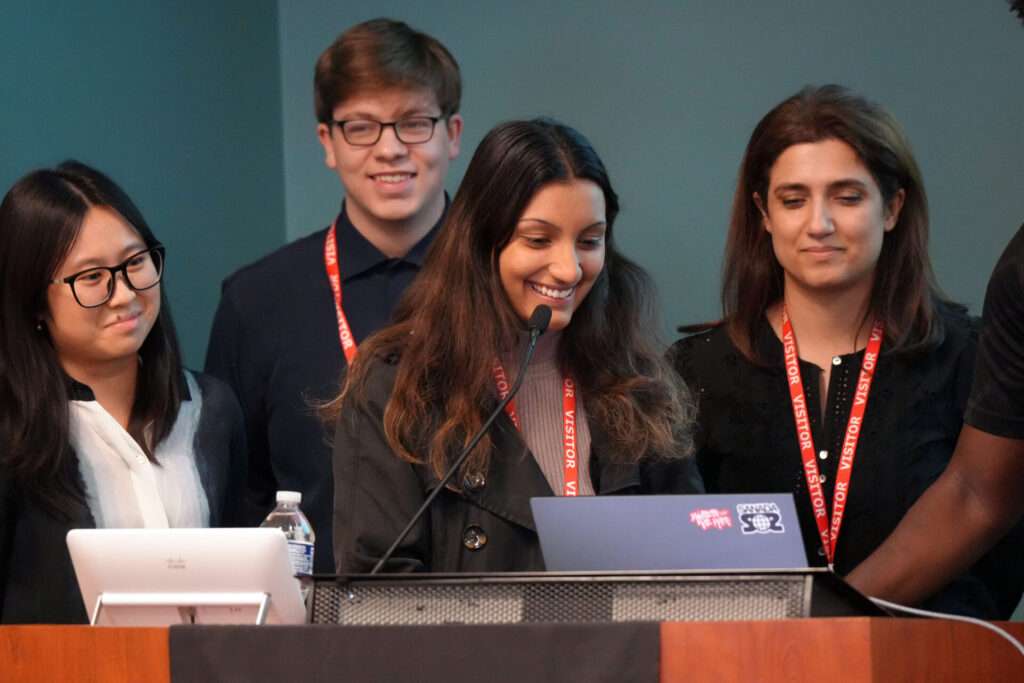
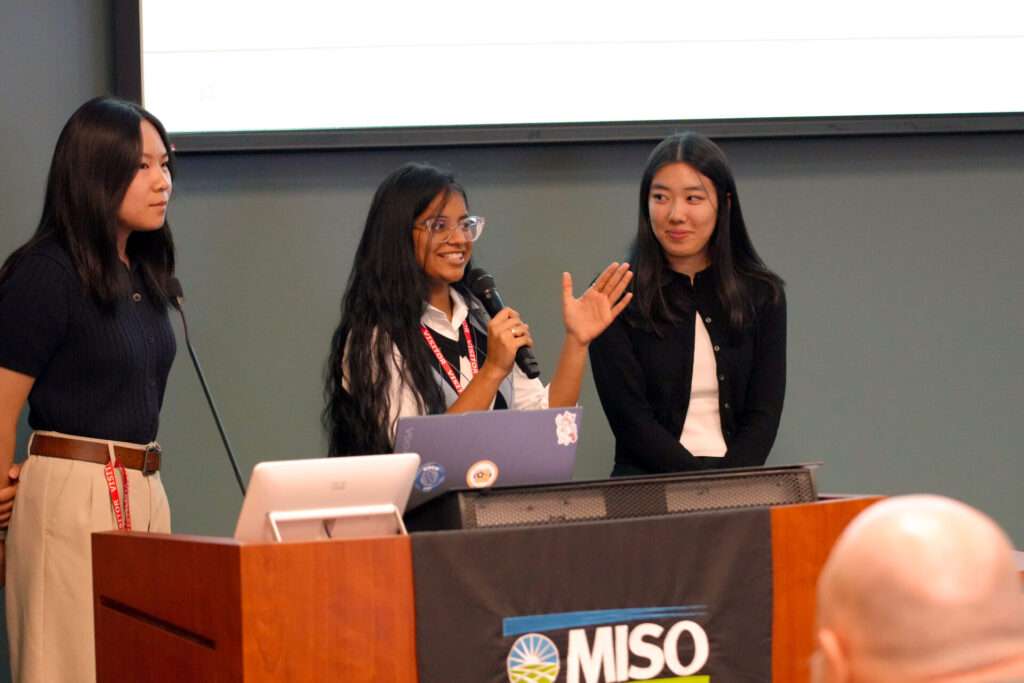
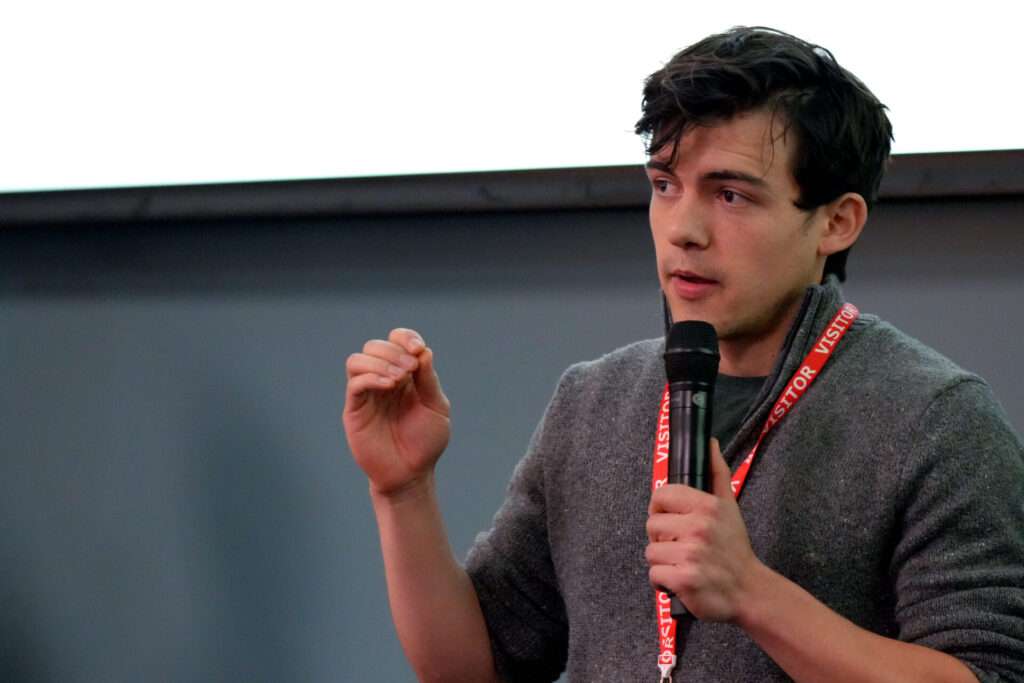
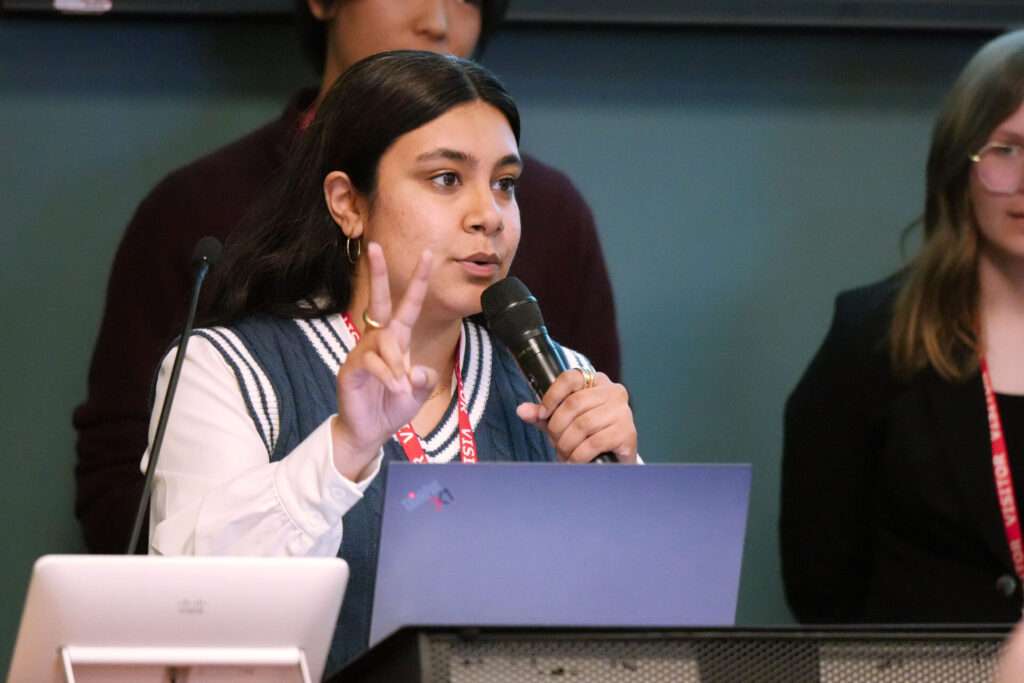
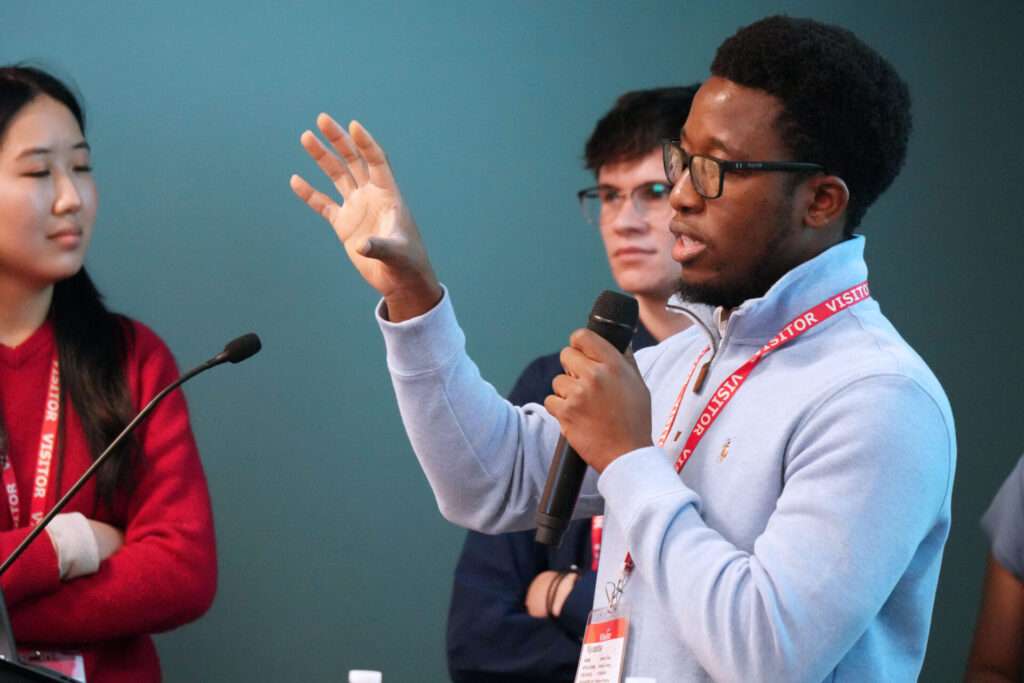
Results and Recognition
After each team made its 15-minute presentation, the following teams were recognized. A $5,000 cash prize was awarded to the first place team, $3,000 to the runner-up, and $2,000 to the third-place team.
First Place — Team 7
Left to right: Brookelynne Thompson (Marian), Oluwatomi Oladunni (Purdue), Ace Page (Indiana University, Indianapolis), and Allen Merrill (University of Indianapolis)
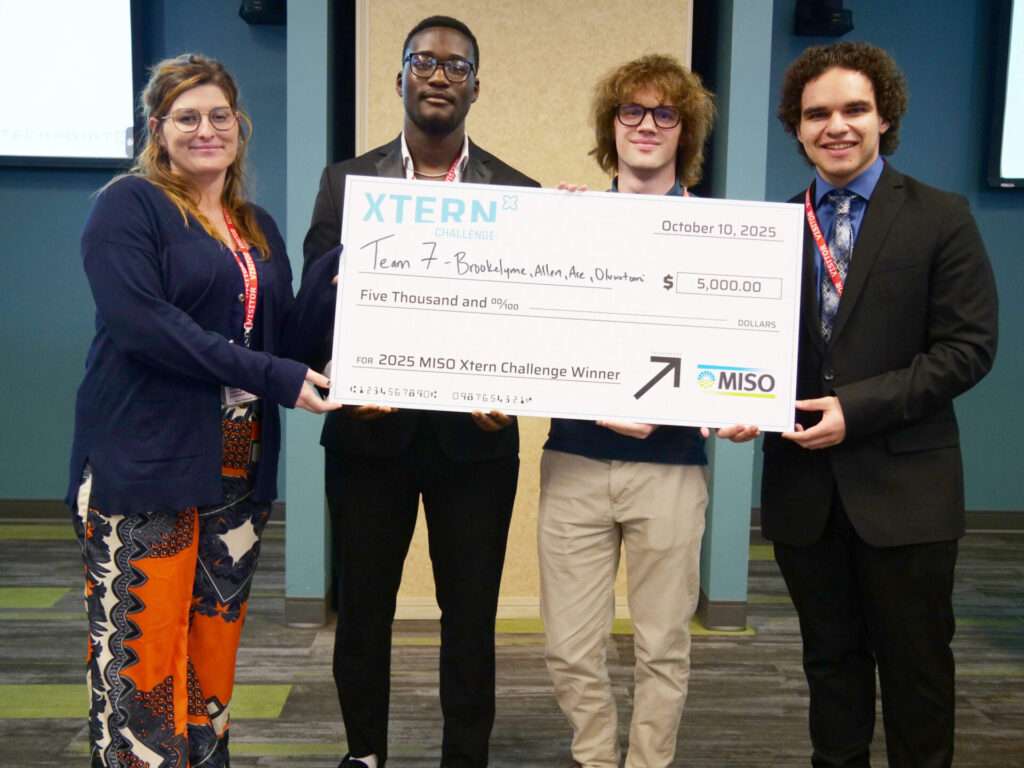
Team 7 built a machine learning model that connected public sentiment and policy decisions across MISO states to forecast energy preferences by region. They found both public sentiment and policy focus favor replacing of coal-based energy. They developed a tool that showed which states are leaning toward various renewable energy sources such as wind, solar, and nuclear power, helping anticipate future policy shifts and resource planning needs.
Second Place — Team 2
Left to right: Srishti Maurya (Purdue University, Indianapolis), Shahrzad Ghadiri (Purdue), Faris Ibrahim (Purdue University, Indianapolis), Seth Poindexter (Franklin College), Cynthia Hu (University of British Columbia)
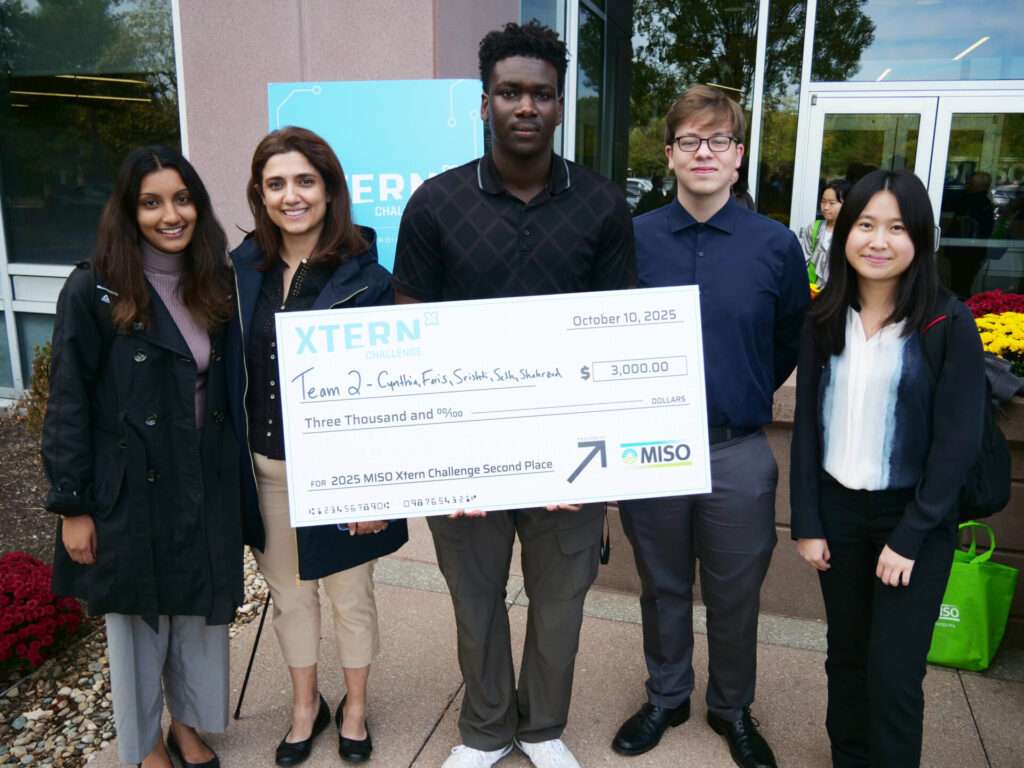
Team 2 combined real-time weather forecasting, policy data, and public sentiment to identify where environmental conditions and emerging legislation might converge to affect energy planning. Their “predictive awareness” dashboard used Python, Prophet, and generative AI to forecast policy and renewable generation trends up to six months in advance.
Third Place — Team 9
Left to right: Peyton Silas (Indiana State), Maeby Neaves (Indiana University, Indianapolis), Donggyu Yoon (Purdue), Maninder Kaur (Purdue), John Salata (Indiana University, Indianapolis)
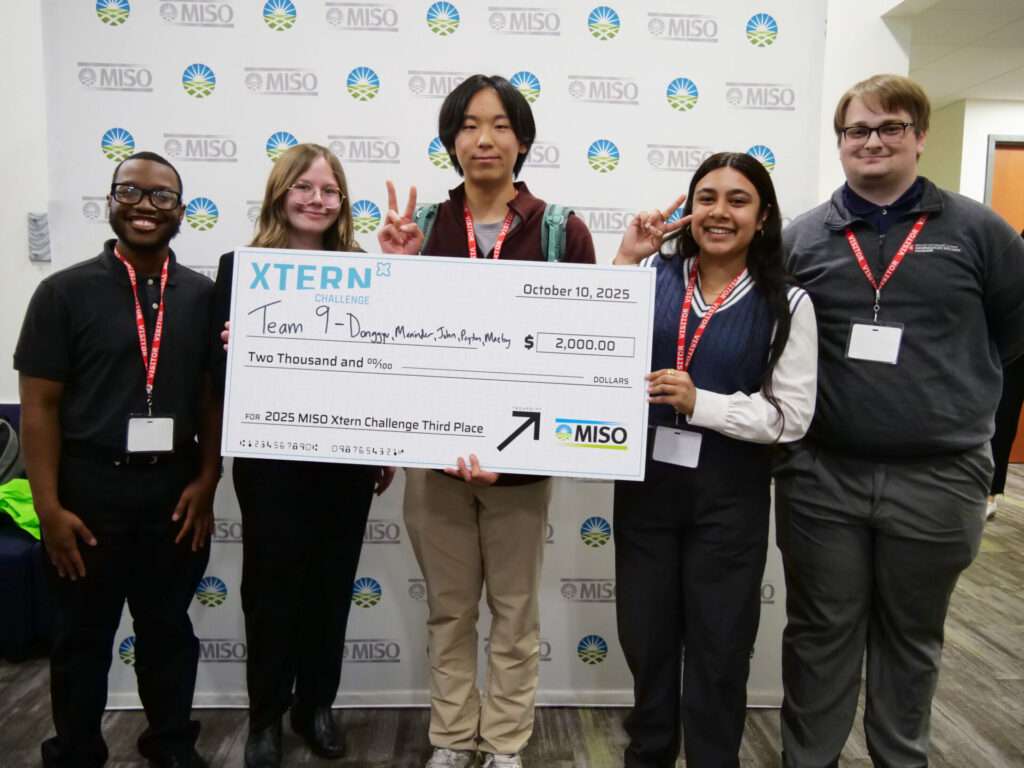
Focusing on Minnesota and Manitoba, Team 9 developed a sentiment analysis model using Power BI and Azure AI to detect early signals of cross-border energy policy change. They developed visuals to show sentiment and key words across regions. Although their dataset was small, the judges praised the model’s structure and scalability.
Special Recognition — Team 3
Left to right: Kennedy Brown (Franklin College), Sriya Chakravarthula (Purdue), and Weizhi Chen (University of Wisconsin-Madison)
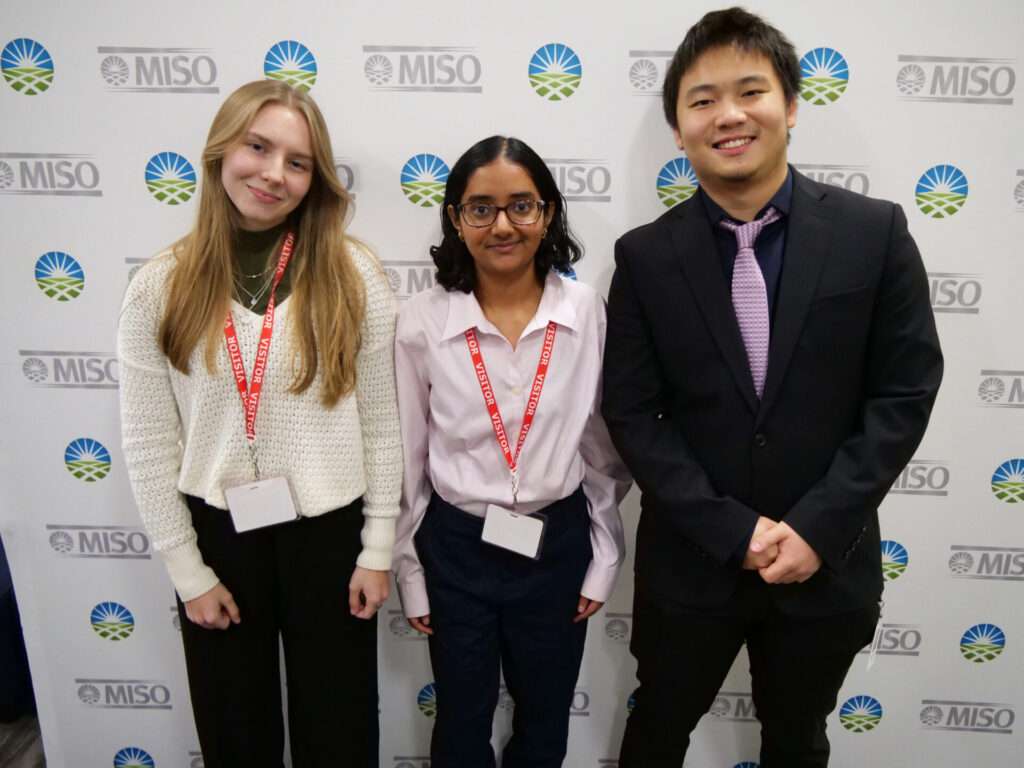
Despite working with only three of their five members, Team 3 built a tool that analyzed language in energy-related news and policy documents to uncover how media tone can shape public and regulatory attitudes. The team’s perseverance and creative approach earned them special recognition for collaboration and commitment, and for reflecting MISO’s core values of Integrity, Commitment, Collaboration, Creativity, and Adaptability.
Building Indiana’s Future Tech Workforce
The Xtern Challenge reflects TechPoint’s ongoing effort to give students meaningful, hands-on work-based learning experiences that prepare them for careers in Indiana’s growing tech ecosystem. By engaging employers like MISO, these events bridge the gap between academic learning and industry practice—helping students apply their classroom knowledge to challenges with statewide impact.
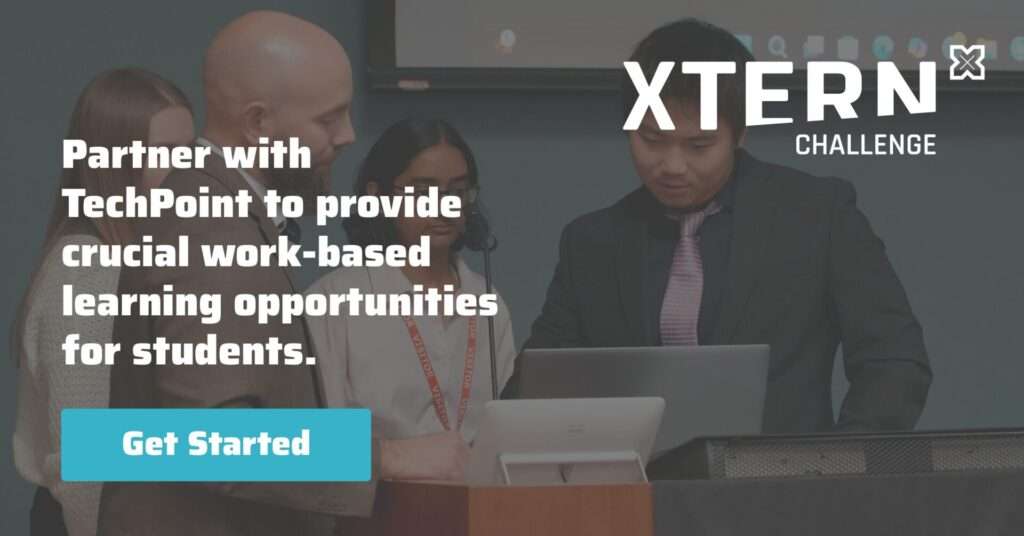
Keep Reading
How Indiana Can Lead in the Age of AI →
BOLT Breakout Discussions: What Indiana’s Tech and Education Leaders Are Saying →
More From TechPoint
Explore data, insights, and actionable frameworks in AI-Driven Skills for Indiana’s Economy →

